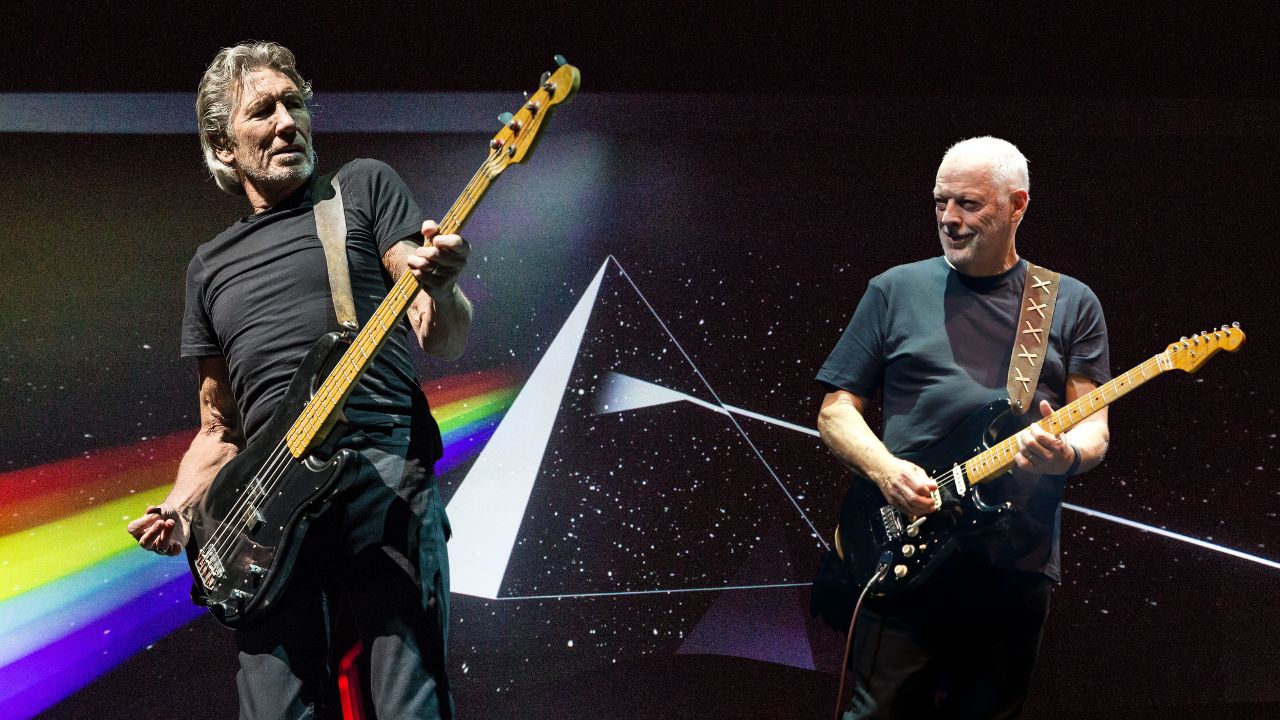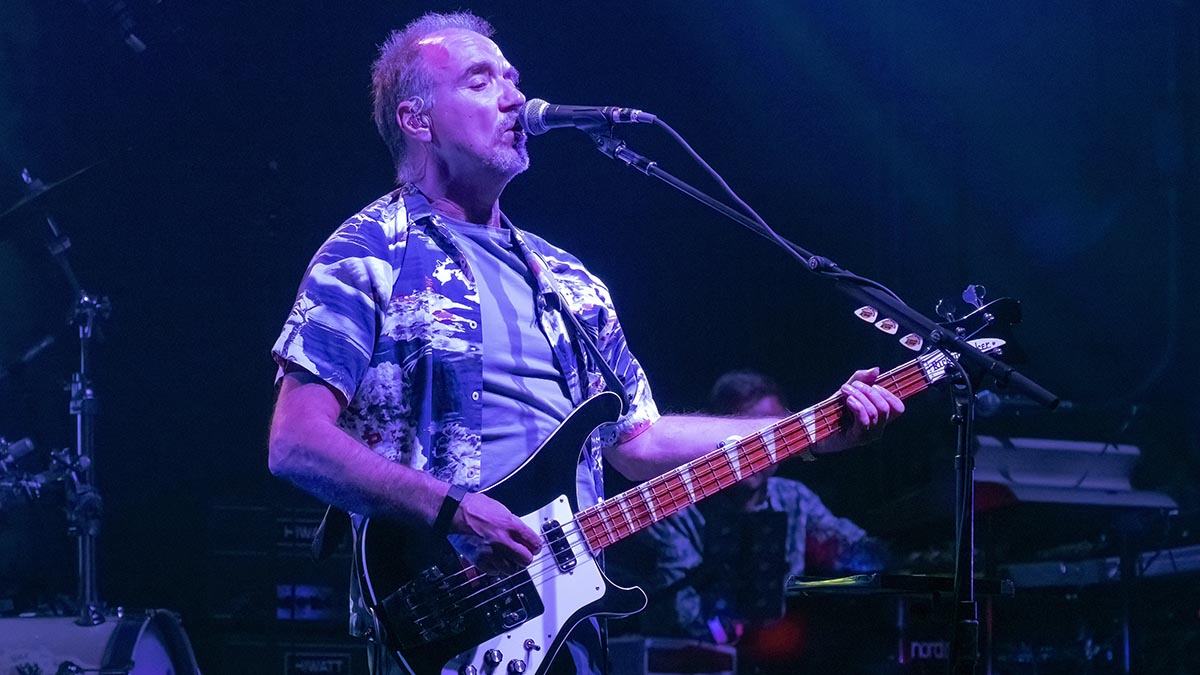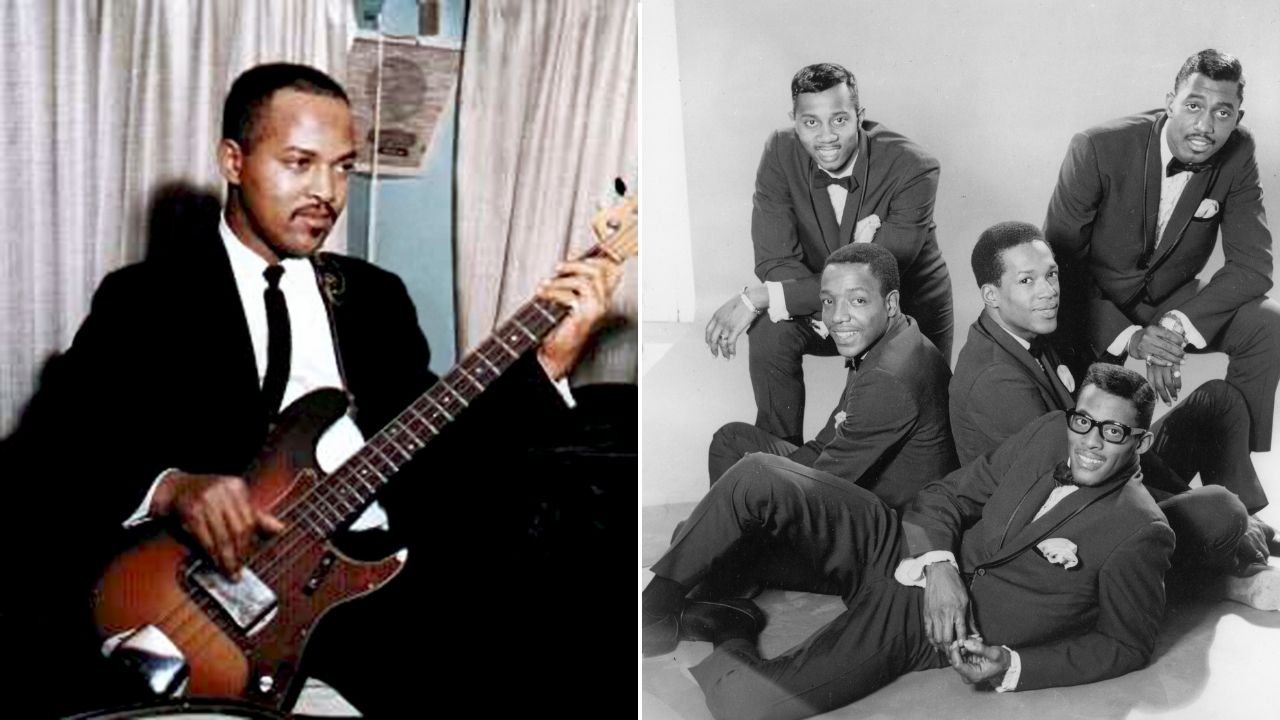“It’s Roger’s bass riff. He came in with the verses and the lyrics for Money”: Listen to the isolated bassline on Pink Floyd’s 1973 masterpiece
The iconic bass riff helped make Dark Side of the Moon one of the biggest-selling albums of all time

Famed for its use of tape loops and the iconic cash register intro, Money is undoubtedly one of Pink Floyd’s finest moments on record. The hit song first appeared on their 1973 album The Dark Side of the Moon.
As the sole credited writer on Money, one must assume that bassist Roger Waters was responsible for coming up with the riff and the basic form of the song. “It’s Roger’s riff,” said David Gilmour when asked where the famous 7/4 time signature came from. “Roger came in with the verses and lyrics for Money more or less completed. We just made up middle sections, guitar solos and all that stuff.”
If you’re unfamiliar with the bassline you should consider wearing your best counting hat – if it’s any consolation the guitar solo is in 4/4.
“We also invented some new riffs,” said Gilmour. “We created a 4/4 progression for the guitar solo, but made the poor saxophone player play in 7/4. It was my idea to break down and become dry and empty for the second chorus of the solo.”
Money came fifth in our list of the 40 best basslines of all time.
You can revisit the isolated bassline below.
The main riff is made up of downbeat quarter notes, so if you can follow the order of the notes you shouldn’t go far wrong. All you need then is to catch the changes from seven to four and back. In the 7/4 sections, all of the notes can be found in the b natural minor scale (b aeolian mode).
All the latest guitar news, interviews, lessons, reviews, deals and more, direct to your inbox!
The blues has got a lot to answer for too – can you hear how the vocal section is a 12-bar sequence complete with chords I, IV and V, and the guitar solo a double length at 24 bars?
You might also notice the tempo varies by around 22 beats per minute – during the course of the song the band reaches 125 bpm by the end of the second verse, 132 bpm when the guitar solo comes in, and 140 bpm during the closing stages of the guitar solo. The guys back then wouldn’t have used a click track. They were obviously high on adrenaline that day.
Your memory of Roger Waters may be of him playing a Fender or Rickenbacker bass guitar, flatwound strings with a pick, in an unspectacular, but solid way – after all, he did often have lead vocal duties as well. Aim for a strong middle-pickup sound with a little added bottom-end, but don’t pull out the mids or you might lose the body of the tone. If you can’t bring yourself to use a pick, boost some treble as well to give some added presence.
When Waters left Pink Floyd in 1985, bassist Guy Pratt found himself standing in his spot onstage, and has remained a key part of the Pink Floyd setup ever since, essentially replacing him in the group, at least on bass.]
“It’s quite funny for me because I’m trying to copy Roger’s bassline,” Pratt told BP. “There’s a real lazy feel on this track, especially on the bass. It’s very good for discipline to retain that authenticity. However, it’s the only track I can bring myself to use a pick on.”


Nick Wells was the Editor of Bass Guitar magazine from 2009 to 2011, before making strides into the world of Artist Relations with Sheldon Dingwall and Dingwall Guitars. He's also the producer of bass-centric documentaries, Walking the Changes and Beneath the Bassline, as well as Production Manager and Artist Liaison for ScottsBassLessons. In his free time, you'll find him jumping around his bedroom to Kool & The Gang while hammering the life out of his P-Bass.
